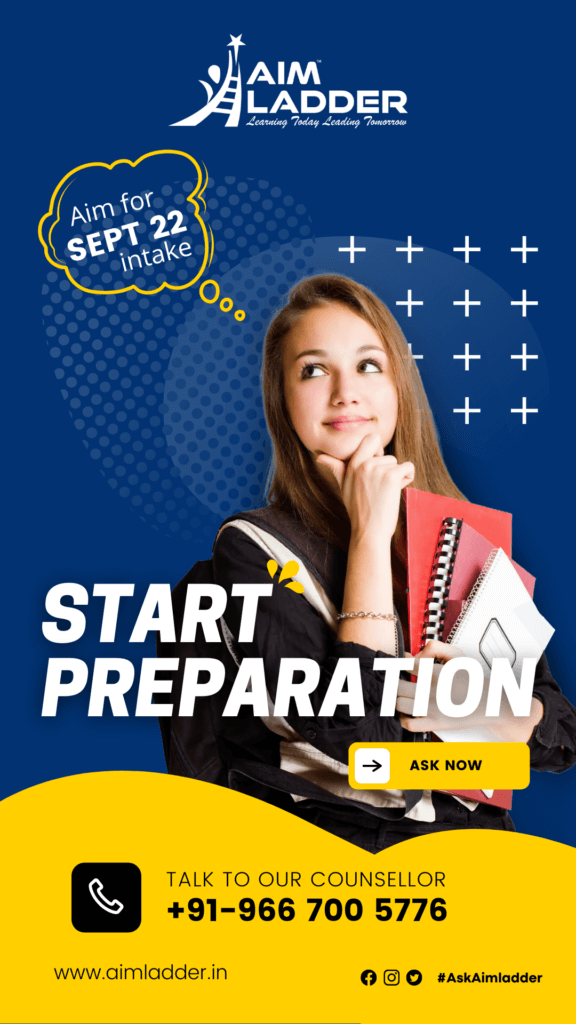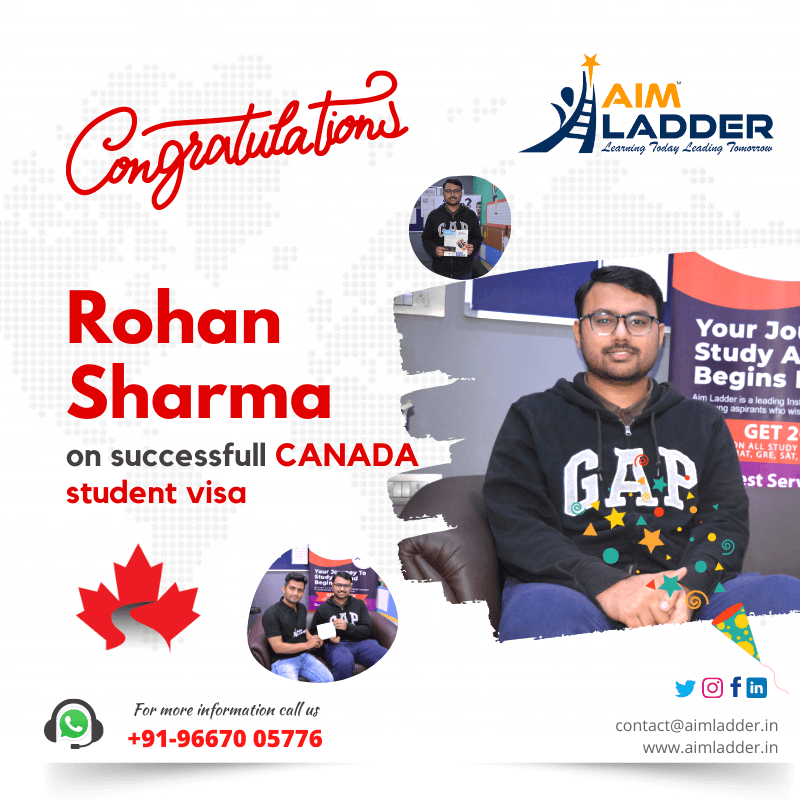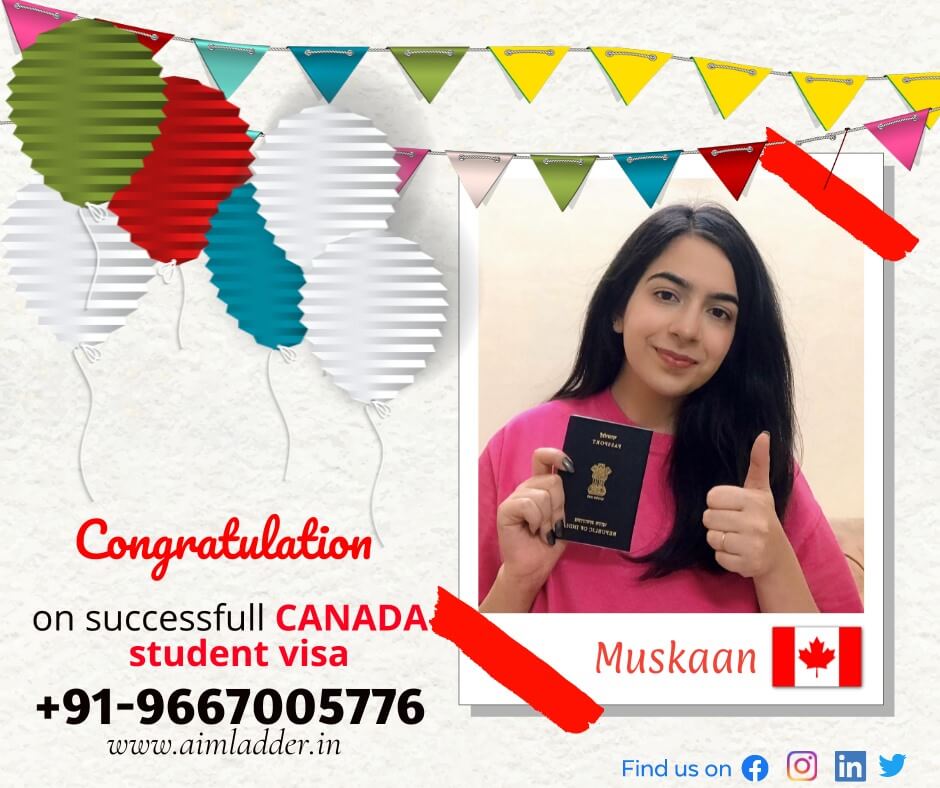- Your First Step To Move Abroad
IELTS Coaching in Dwarka
by Aim Ladder
If you are a full-time student or a working professional, our IELTS Coaching is designed just for you! You get the advantage of a comfortable learning environment leading to greater learning outcomes.

WHAT IS IELTS?
IELTS is an abbreviation for INTERNATIONAL ENGLISH LANGUAGE TESTING SYSTEM.
It has been the most renowned English language test for over two decades. If a person wishes to go to another country, where English is their native language then they must take this test.
IELTS tests one’s ability to WRITE, READ, LISTEN and SPEAK the English language on a scale of band 1-9.
IELTS test types
Which IELTS test is right for you?
IELTS Academic
Those wishing to study at a university (higher education) in an English-speaking country should take the IELTS Academic test. The purpose of the IELTS Academic test is to determine whether you are ready to start studying English.
IELTS General Training
The IELTS General Training test is suitable for those applying for work or other employment training.
IELTS General Training is also required for migration (PR) to many English-speaking countries such as Australia, Canada, New Zealand and the UK.
THE FOUR MODULES OF IELTS:
IELTS has four modules in totals such as WRITING, READING, LISTENING and SPEAKING.
On the day of the test, one has to give three tests in total writing, reading and listening however speaking one will be taken one week before or after this test. For WRITING the candidate gets 60 minutes in total, 60 minutes for reading too. 30 minutes of listening and 11-14 minutes for speaking.
For reading, candidates get a total time of 60 minutes in which they need to answer 40 questions from 3 sections.
You will get three passages from different journals, books, magazines and newspapers. You will have to read it and then answer the questions accordingly.
There is also a slite difference between academic reading and general training. The academic test will have topics suitable for students entering a university or professional institutions. The general training test will contain topics based on general interest.
The last module we have is speaking, the test lasts for 11-14 minutes and has 3 parts in it.
In the first part, the examiner asks you to introduce yourself and then ask general questions about your interests, family and friends.
In the second part, you will be given a topic and will have to speak on that after 1 minute of thinking time.
In the third part, the examiner will ask you questions related to the topic you spoke upon.
You will be assessed by your ability to communicate and present yourself effectively in the English language.
Task 1
For this module, the candidate has two tasks in total.
Candidates giving the academic test have to describe a diagram or some data in form of a graph, table or chart in 150 words of their own in the first task.
For General Training candidates they must write a letter to a manager, some officer, public servant etc. The topic of the letter will be given, they must follow the format of the letter. The number of the words must be the same as the academic, 150 words at least.
Task 2
For task two of writing, academic candidates will be given a point of view of someone, argument or problem. They will be assessed on their ability to present their opinion on the topic and also find the possible solutions to the issue. The word limit for task 2 is a minimum of 250 words.
The general training candidates, they will be given a few questions that will be related to each other. They need to answer the questions in the form of an article in at least 250 words. The questions will be related to some general topics which are in news or something everyone knows of, the way one answers all the questions and if there is a problem then they must mention all the possible solutions.
You will get three passages from different journals, books, magazines and newspapers. You will have to read it and then answer the questions accordingly.
There is also a slight difference between academic reading and general training. The academic test will have topics suitable for students entering a university or professional institutions. The general training test will contain topics based on general interest.
This module of the IELTS test is the SAME for both academic and general training candidates.
The time given is 30 minutes with 4 parts and 40 questions in total.
4 parts of listening:
In the first part of the listening test, the candidate will listen to a conversation between two people and try to answer the questions while listening because you will only get to hear it once.
Each part of this module contains 10 questions.
In the second part, you will hear a monologue and answer the question according to that.
For the third part, you will hear another conversation but this time it is between more than 4 people. The topic of the conversation will be related to education or hot topics in media.
The fourth and last part of this module is again a monologue.
The candidate must be familiar with different accents to understand them in one go.
The question types are mostly: multiple choice, matching, labelling, form completion, table completion, flow-chart completion, sentence completion and short-answer questions.
In the first part, the examiner asks you to introduce yourself and then ask general questions about your interests, family and friends.
In the second part, you will be given a topic and will have to speak on that after 1 minute of thinking time.
In the third part, the examiner will ask you questions related to the topic you spoke upon.
You will be assessed by your ability to communicate and present yourself effectively in the English language.
WHY YOU SHOULD TAKE THE IELTS TEST
IELTS is required for
STUDY IN ABROAD
If you are a student who wishes to continue your education in overseas universities then you must take the IELTS test.
WORK IN ABROAD
Every country where English is their native language also requires its employees to be proficient English speakers. If you want to work abroad for better growth or lifestyle then you must take the IELTS test.
IMMIGRATION
If one is planning to immigrate to an English-speaking country then IELTS is a must. To get involved with the natives of any country knowing their language and being able to communicate with them is a basic necessity.
Paper or Computer-delivered IELTS ?
IELTS can now be taken on paper or on a computer in a variety of locations.
The choice of test type utterly depends on one’s preference. Candidates opting for paper-based test must ensure that they have understandable handwriting and can write without any spelling mistakes. Meanwhile, the candidates who desire to take Computer Delivered IELTS must have fine typing speed and should be aware of using a computer keyboard.
There are many misconceptions that one type of test is easier than the other. No, both computer-based and paper-based are equal in every aspect of difficulty level.
It all depends on the individual, their choice and their speed.
Some people are more comfortable with a pencil and paper while some believe that typing is easier. One can also try some practice tests before deciding which is the best for them.
It is always wise to try some practice(mock) tests before choosing the test type to know best.
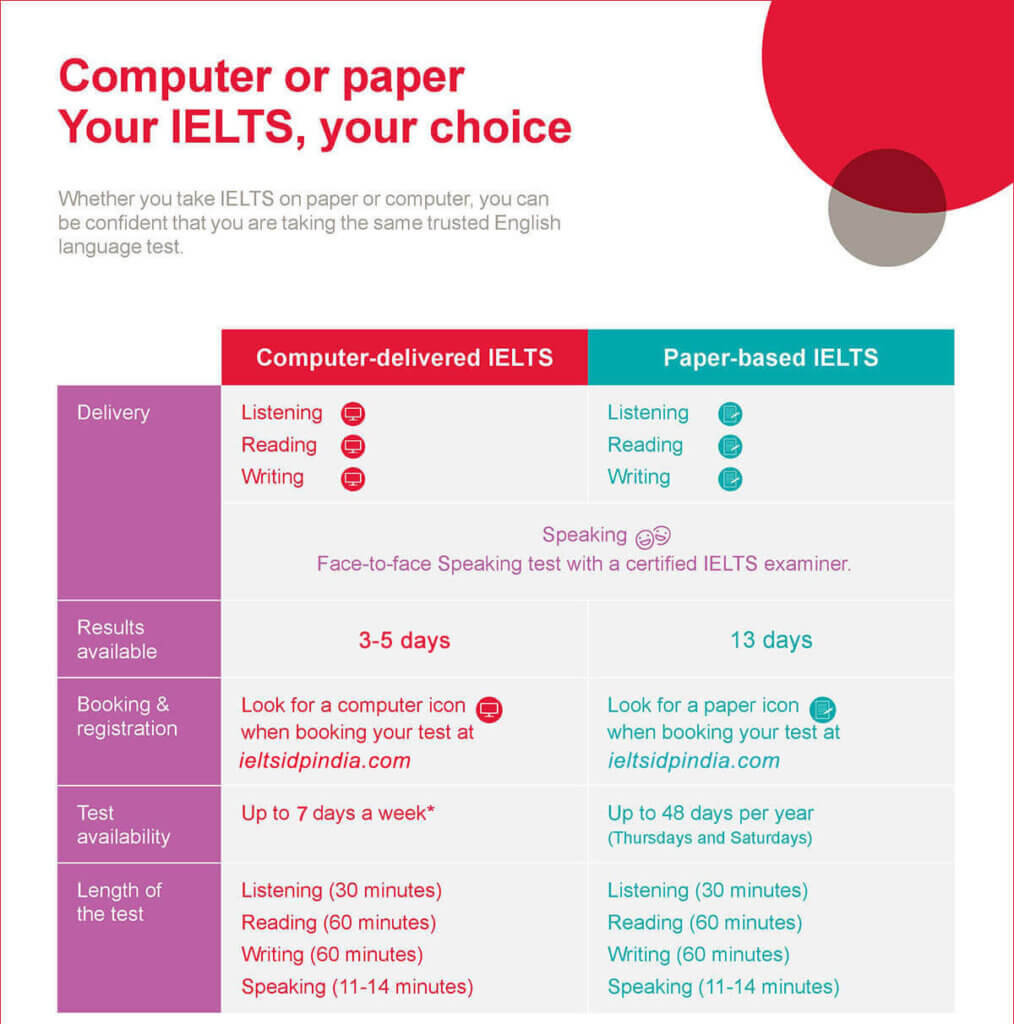
image source: IDP India
IELTS Coaching in Dwarka
Accepted in







Trusted by over 1000+ Students & PR or Job Seekers. Since 2017.
Kevin Oommen
Aim ladder is definitely the best Institute in Dwarka if you’re looking forward to go abroad. I’ve had the best experience working with them. The Team working there is amazing, highly responsive and I cant even explain how supportive they’ve been. Everyone scored in batch 7-8 bands! So I’d definitely recommend Aim Ladder

Take the first step to a successful future
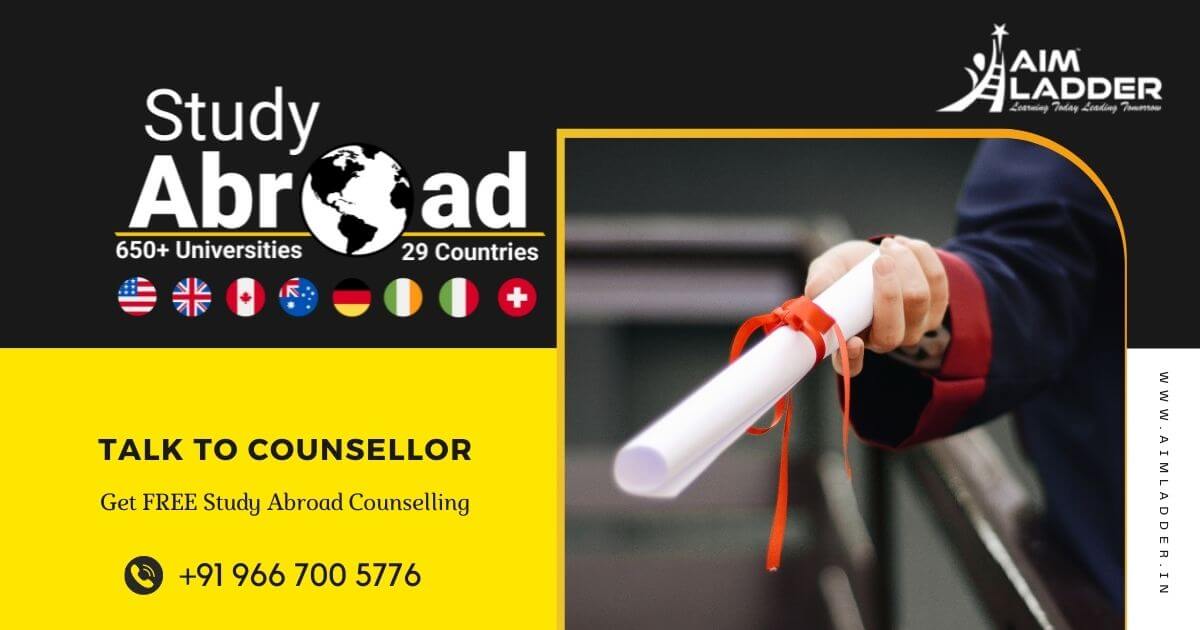
IELTS For Study in abroad
Studying abroad is a great way to expand your horizons and can be a rewarding and enriching experience. There is no doubt that you will be able to gain a lot from this experience, which is why it is so popular among young people and why you might be considering it. IELTS can help you get a good country, university & course.

IELTS For Work in abroad
You can go to almost any country in the world and find a job, but that country might not always be the perfect place to live. So, what do you do? You look for a job so you can move to a different country. But how do you get a job in a different country? Is IELTS required? This is where a lot of people get stuck.

PR or Citizenship
If you are applying for permanent residency in an English speaking country, it is likely that you will need to present evidence of English language proficiency. IELTS is accepted by the Department of Home Affairs for many visa categories, as well as for permanent residency in most English-speaking speaking countries.
Features
- Vast Career Opportunities
- Develop English Language Skills
- Career Counselling
- Admission in Top Universities
- Improve Your Future Prospects
Benefits
- Improve Your Communication Skills
- Benefit From Professional Development
- Get A Global Mind-Set
- Leads To A Successful Career
- Gain Insights into Another Culture
Certified Trainers & Counsellors
You can consult with our certified trainers and expert counselors to narrow down the best universities and courses as per your profile. We are proud academic representatives of over 650 universities spread across 29 countries including the US, UK, Canada, Australia, New Zealand, and many more.


Students' Success Stories
Many of our students achieve results that are even beyond exceptional. Here are some of their stories.
